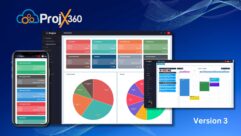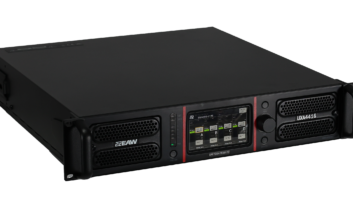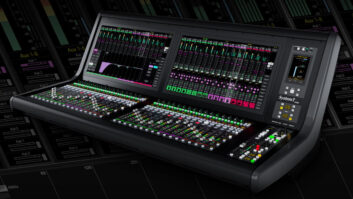
Management Perspectives: Managing Cash Flow
Dec 1, 2003 12:00 PM,
By William Lynott
Click here to read more Management Perspectives columns

Cash flow — how much money is flowing into and out of a business — is an easy concept to understand. Still, not every electronics professional is fully aware of the impact that cash flow has on the bottom line. That’s probably because the importance of cash management is much easier to recognize in some types of businesses than it is in others.
Take home building, for example. When a builder takes on hundreds of thousands of dollars in short-term debt in order to build some new homes, it’s obvious that he or she must generate substantial positive cash flow in a hurry if the business is to survive.
Of course, not every situation is that dramatic, but generating and managing cash flow are critically important responsibilities for all contractors. Losing control of money has generated more financial headaches for small-business owners than temporary red figures on the bottom line. On the other hand, a sensible cash management system can provide a life-sustaining cushion during those inevitable slow times when the clients aren’t streaming in and the phone isn’t ringing as often as you’d like.
THE GOLDEN RULES
Once you accept the importance of cash flow, you’ll find it easier to stick to the rules of good cash management in your shop. Here are nine powerful techniques for improving your cash flow and profits:
Never allow any of your money to lie idle
If you don’t already have one, open a money market account at your bank and have it linked to your business checking account for telephone or online transfers. Deposit all of your daily receipts into the money market account, where they will immediately start drawing interest. This step may not seem worth the effort at today’s admittedly paltry interest rates, but this is a temporary situation. Interest rates are already beginning to inch up, so your efforts today will pay off tomorrow.
Never deposit receipts directly into your checking account. Keep a minimum balance in the checking account and transfer cash by phone or online only as needed to cover checks written.
The worst money sin of all is leaving checks or cash lying around in a desk drawer until you can get to the bank. Using every cent of your money to make money is the mark of professional cash management.
Don’t be timid about using other people’s money
Everyone has heard stories about people who have built large successful businesses without ever borrowing a cent, but they are clearly the exceptions. At today’s extraordinarily low interest rates, careful use of credit can be one of your most effective business-building tools.
Most financial professionals are uncomfortable with extensive use of credit for personal affairs. Business, though, is a different matter. To begin with, the costs of borrowing are legitimate tax deductions for businesses. It makes more sense to spread out the cost of capital purchases than to put stress on your cash flow by laying out large amounts of cash that you could put to productive business use. Credit, when used in a sensible and controlled manner, is a powerful profit enhancer.
Consider leasing
Most accountants agree that leasing is the most expensive way to maintain a personal car. But business is a different animal entirely.
“The nature of business accounting is such that leasing can be the most sensible approach to many types of capital investment,” says Thomas Normoyle, CPA. “It usually makes sense to lease if you will be able to use the cash in your business or in your investments to earn a better return than the cost of leasing.”
Talk to your own tax adviser about that the next time you’re considering any purchase of capital equipment that might be available on a lease basis.
Diversify to keep cash flowing
This is an important strategy for any business subject to fluctuations in the economy. When you and your employees are idle, any work is better than no work at all. Offering any special services or products at prices that do not satisfy your usual parameters of profitability can make sense if they provide work and some cash inflow where there would otherwise be little or none.
Don’t be in a big hurry to pay your bills
There’s a good reason why checks are slow to come in from some people who owe you money. It’s because hanging on to cash as long as possible keeps that money available to draw interest or to work in the business of the person paying the bills.
That’s why you should set up a system that provides for paying bills only when they come due. It’s easy to do and is another rung on the ladder of professional cash management. However, don’t go overboard and jeopardize your credit standing by paying bills late. Pay your bills when they are due — not before, not after.
Also keep an eye on the state of postal deliveries during this uncertain time. If it seems that another delay in deliveries may be on the horizon, allow extra time for your credit card payments to arrive in time to avoid those oppressive late-payment fees.
Be aggressive about collecting accounts receivable
If you do any of your own billing, it’s important not to allow those receivables to go untended. You’ve earned that money, you have a right to it, and you need it. If your customers learn that you are cavalier about money owed to you, you can be certain they will stretch your patience (and your cash flow) to the limit.
Maintain a cash cushion
Whenever possible, keep enough cash in interest-bearing accounts to cover normal operating expenses for three to six months. There is nothing like the peace of mind and self-confidence that comes when you don’t have to sweat out next week’s payroll during a business slowdown. Also, remember that your cushion money is making money for you in those interest-bearing accounts.
Develop a personal relationship with your banker
Handling money is a banker’s job. Even if your operation is relatively small, it’s a good idea to have a personal relationship at the bank where you do business. Discuss your financial picture honestly with the manager of your local branch. You’ll get some good ideas and a favorable ear should you ever need a little financial help.
Let your computer help you manage your cash flow
Whether your business is large enough to make use of one of those heavyweight commercial software packages or whether you use Quicken or Money on a desktop PC, trust every aspect of your finances, including personal investments, to your computer. The financial reports and analyses that modern software can produce at the touch of a button can be vitally important tools for improving cash flow and bottom-line profits.
Even if your business is large enough to farm out your record keeping, consider putting your finances into one of the popular software packages designed for small business and personal finance. They are infinitely easier to use than they were as recently as a couple of years ago. More important, they will teach you in dramatic fashion how much you can benefit from a sensible cash management system.
Taken individually, good cash management techniques may seem inconsequential. However, when you blend them together in a consistent manner, they will form a significant and permanent contributor to your bottom line.
William Lynottis a former management consultant and corporate executive who writes about human interest, business, and financial topics for consumer and trade publications and is the author of Money: How to Make the Most of What You’ve Got. He can be reached at[email protected].










